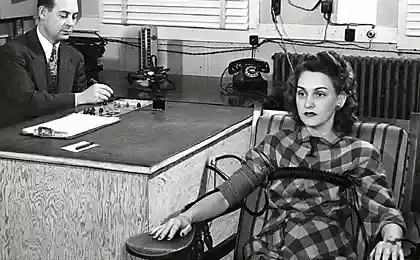647
As fed infants in pre-revolutionary Russia
"The French doctors came to the conclusion that the milk of dark-skinned women and brunettes better milk Whiteface and a blonde" is a quote from a popular medical book, published in 1892.
Eighty seven million six hundred eight thousand six hundred fifty nine
"Daily bread" for mother and child Peasant women believed that colostrum is extremely harmful to the child, and in the early days did not put to the breast, but colostrum was decanted to the ground. When the newborn cried, he was given a pacifier. The nipple in the peasant household is a soft cloth that was wrapped chewed pretzel with sugar (in wealthy homes) or just a sweet porridge or rye bread (in poor homes). The cloth was allowed to suck the newly born baby. Naturally, in the European cultural tradition, which is supported by the official medicine, was an uncompromising struggle with a pacifier.
"The nipple is very harmful for the baby, wrote the author of one of the most popular benefits. – It is a thrush, regurgitation, colic, diarrhea, no sleep and thinness. If the mother can't do without nipples, even gives the baby a rubber nipple bottle".
Combating nipple continued and Soviet doctors. If at the end of the nineteenth century the abandonment nipples argued that this is a bad habit and that nipple is the food the newborn cannot digest that, in the early twentieth century to this set of arguments against nipples added another: the nipple – carrying microbes that kill all life.
In 20-e years have appeared the special editions, is addressed to rural activists who were supposed to teach mothers and their helpers, adolescent girls. These benefits contain medical advice, formulated in simple farmers language. They, as a catechism, drawn up in question-answer form. Here is how this manual explains the harm with nipples chewed bread:
"Question: Can you give an infant chewing pacifier with bread?Answer: It Is Impossible.The Question: Why?Answer: Because a child's stomach can't even digest bread and the baby's crinkled nipples just ache; moreover, thanks to the nipple, the child is often infected with different diseases.Question: Where the infection gets into the nipple?Answer: the spread is small living creatures called microbes. Microbes are very small, to small that even the eye can not see, but only with a magnifying glass. Germs are everywhere on the floor and in the air, on the hands, especially a lot of them where dirty. When the nipple falls on the floor and take it with unwashed hands, stick to it microbes. The nipple along with the germs shoved into the child's mouth, and then to have him mouth blooms or a tummy ache, or something sick." If a peasant woman after childbirth started to work on the third day, the rich woman was ordered a few days to be alone. Here is how about it should look like the life of a woman from the point of view of medical brochures.
She had for nine days to stay in bed. The first two day were encouraged to lie only on the back and in any case do not sit. It was necessary to monitor the cleanliness of bed linen. Dirty diapers were instructed to remove from room, where lay a woman in labor, because they spoil the air. Generally speaking, the monitoring of air quality, from the point of view of health benefits, the main business of the person involved in their health.
Gave birth to a woman was ordered complete rest, both physical and mental. No one except the relatives, to let her was impossible, and it is strictly forbidden to engage in farming or mental work. Get out of the house gave birth to a woman could in a month. In any case, so it is recommended that doctors.
You see, what's the difference between what the could do and was doing peasant woman after childbirth, and what is the procedure instructed the woman, belonging to different strata of society.
Except when peace gave birth to the woman were instructed diet: milk, meat stock – preferably with egg yolk, tea or coffee with milk. Coffee, in fact, a very common drink, no it was not for breastfeeding women or for children. In addition to protein foods that you just gave birth to the woman recommended eating white bread, and other foods to introduce gradually. It's not like eating today, women after childbirth, these products they are trying to eliminate from your diet.
The question of how did the peasant woman any dietary restrictions after childbirth, do not put. Anyway, those ethnographic materials devoted to this topic, do not contain any information about what she needs to eat differently. We only know that after childbirth the woman gave the brew with oatmeal or oats, this practice was widespread. Roommate brought who gave birth to the woman pies, and that quite surprisingly, after childbirth she was given to drink vodka. Apparently, it was common practice.
Peasant woman feeding her baby up to one and a half to two years. Usually believed to feed at least three posts. Moreover, under the posts meant only Christmas and lent. Thus was one and a half years, and who is almost two.
The age when a peasant baby began to feed, in different places of the Russian Empire were different. When we read that the mother feeds her baby and a half to two years, it seems to us that a peasant baby up to two years were fed exclusively with mother's milk. In fact, nothing of the sort. Some provinces have started to lure the child in two or three weeks, others in five or six weeks in the third – in two months.
In any case, the lure started very early. As foods were given cow's milk or liquid gruel cooked with milk. Cooked gruel or flour or ground millet. This milk porridge was the main diet of the child up to two years. He ate gruel, milk and bread, and it's almost all he ate.
I must say that early feeding is not due to ideology, but solely on practical grounds. Mother had to work. Female hands were needed on the farm, because the care of cattle, cooking, bread baking is women's work, the man did not. Not to mention the fact that if a child was born in the summer, his prospects for exclusive breastfeeding was very vague. Even let's face it – he doesn't have any prospects that the mother will be a long time to feed him.
The woman went to harvest and left the child with the nanny who nursed him as iskusstvenniy, cow's milk and gruel. Nurse when baby was or old grandma, or teenager, or even a teenage boy. That is, one who did not participate in the extended family works, and this man in the absence of the mother fed the baby.
If the family was the second woman with the baby, she could feed two if the mother at the right time was not at home. We see that the baby was not so much attached to his mother, as is happening now.
The child was transferred to the adult food at the moment when he could have himself, no one fed with a spoon. I must say that was a bottle of milk. The baby was fed with milk and liquid porridge from cow horn (and therefore a bottle with a nipple can still be called "horn"), at the end of it made a hole that wore the nipple of the cow. As you know, about any sanitary norms of the speech was not. Glass bottle appeared in the city only at the turn of XIX-XX centuries, and the peasants even later.
Forty one million seven hundred fifty thousand seven hundred eighty six
Why hire and "re-educated" nurses Have Europeanized part of the population – the nobility and wealthy of citizens – the question of breastfeeding were resolved quite differently. Women are rarely alone fed the child. Usually, they resorted to the services of the nurse. Moreover, the practice here is inconsistent with the declarations in the popular medical booklets.
All the pamphlets, devoted to baby care, in one voice say that the best thing a mother can do for her baby is to breastfeed him. And this is the topic of a page is popular medical literature. The authors appeal to the idea of naturalness, the idea of the physical unity of mother and child.
They write that the feed can be difficult and hard, but this is consistent with the laws of nature. In this case literally a few pages later the same authors give recommendations on the choice of the nurse. The transition from one to another is not unusual. Since the practice of taking home a nurse was widespread and common, it was necessary to explain her right to choose.
Why the woman, knowing about the benefits of mother's milk almost always prefer to hire a nurse? Because she felt weak and exhausted with pregnancy and childbirth. The idea that a woman is weak and not adapted to life, as the idea was quite prevalent in society.
Many educated and affluent women, but only the most heroic, felt weak, helpless and not having the opportunity to feed your baby. And it's not due to the desire to keep a good figure or to travel with her husband to visit, no is exactly the idea of physical helplessness. Not the helplessness, and the idea of helplessness. Hard to imagine that most women of the nobility were physically underdeveloped and could not feed her child.
With this consideration, the nurse admitted the only possible way out of the situation. The authors of popular medical brochures think about the nature of the institution of the nurses and, of course, speak about the Institute's unflattering, because a woman, engaging in the nurse practically sells her body.
Twenty five million one hundred fifty five thousand two hundred seventy
Alexei Venetsianov, “Nurse and child”, 1830
I must say that many of the brochures were translated from European languages, that is, it reflects the European practice and European perspective. Here is the reflection of one of the German authors:
"The Institute nurses unworthy people trade robbery rich poor child, who, so to speak, from the mouth of this poor child pulls the food assigned to him by God. It is known that in Germany, we nurse mostly belong to the class of handmaids, though unmarried. It is also known that the care for daily bread forces these mothers as soon as possible after the resolution of the burden to seek shelter earnings in foreign people. If a woman goes to the house of the nurse, it will win at least for another baby, win, which, in any case your own child is deprived of it forever." In Russia as in Germany, the house took the woman without a child. If we are talking about the capitals – Moscow and St. Petersburg, as a rule, a woman left her baby in the foster home or sent to relatives in the village and went to work in a rich house, where she offered herself as nurse.
I must say that in foster homes the death rate was appalling. The children were dying primarily because they were not fed breast milk, because in the foster home were not money-makers. Rather, they were, but much less than required. The woman handed over her baby and went to work as a nurse. And it was a common practice.
By the XX century the attitude to the institution of nurses becomes even more dramatic. Here is a quote from the book of a German Professor, written in the early twentieth century, translated and published in 20-e years in the USSR.
"If the doctor finds that the mother is unable to breastfeed your child, then the question arises: should we not take nurse? This again must be decided by the doctor. But the mother must remember that she assumes a heavy responsibility, if you take a nurse, at the time when she is able to breast feed my child. After all, so is this woman-a nurse denies her child for money, the mother's breast, to which he is legally entitled. Thus, welfare of a rich parasite is often worth the life of another child. Only a doctor can decide whether a nurse, and he'll take measures to better protect the interests of the child nurse. This protection is best reflected in the fact that the mother is taking the nurse with her child, and that, therefore, feed both children at once." In translation to this paragraph, added a curious note:
"In the USSR work of the nurse, as the labor of every worker is protected by law. The nurse enters into with the employer the exact contract governing their relationship." We see that in 20 years still practiced invitation to the child of the nurse, and this was reflected in legal documents. But still we can say that by the beginning of XX century the Institute of nurses is already dying. The idea that the woman feeds the child, it becomes practice.
But in the second half of the nineteenth century, the wet nurse – a common occurrence in the house of wealthy people. Curiously, the wives of the clergy in the main themselves to feed their children, but if the family is wealthy, rich parish, you may also hire a wet nurse. The nurse is a sign of a certain financial situation as it is today – a good car.
Benefits to care for a baby is a lot of pages I devote to the question of the choice of the nurse, because it is a very important question, because the host and hostess have to be confident that their child will feed and will not cause him any harm. In allowances is addressed to young mothers, which were translated from European languages, the declared relationship of hair color with milk quality. It was believed that brunette nurse like better blondes, and worst of all women with red hair, which in any case should not take into the house.
At all at that time doctors thought that the appearance of the woman tied to the quantity and quality of milk. In one of the most popular books read:
"The woman slim, tall, chest which is not sufficiently developed, which has extremely white skin and dark hair, whose wide jaws, is not suitable to the nurse." This kind of considerations wander from the books in the book. Some authors argue with it and write that believed their predecessors, and they now think that appearance does not determine the amount of milk and hair color and body type not so affect its quality. But in all these books is one piece of advice on the choice of the nurse, which shocks us today: the nurse has to select the teeth, like a horse, because the teeth talking about women's health and milk quality.
Along with a nurse to the house of a noblewoman or a wealthy townswoman penetrated features of folk life and folk look at how to care for a baby. And it scared doctors and mothers. Medical benefits contains a special section about how to neutralize the nurse to explain to her that she was wrong. Read two examples of how the situation sees a doctor.
"Nowhere, perhaps, there is such a mass of absurd superstitions of the infidels, as in the nursery. The nurse has a full opportunity of bringing them to life, if it literally day and night watching suspicious eye of mother. It is not in the nipple. Popping chest child at the slightest cry, shaking, laying with you in bed, the use of different secret soothing powders, tinctures, Mac and so on – all this meets the mother daily and uses all their efforts on stopping the nurse from such techniques. But it is weaning difficult, as the nurse looks at these prohibitions as a whim of the parents of harming the child, and when the opportunity will let all of your techniques in progress". And that's the second such consideration:
"For example, try to convince the nurse that the child is healthier to feed correctly through known intervals of time. It is bad to put with him in one bed. Reluctantly, she will listen to you, but as soon as you turn your back she'll stick her breast to the baby at the first peep. If she knows that you do not enter the night in the nursery, she will teach a child to sleep with you. And it's not from moral depravity, as I think of the mother, and the fact that the nurse is deeply convinced that all that is required of her, nothing like the master's imagination, damaging the prosperity of the child. In fact, neither she nor her family never anything like this with their children did not come, and the children, despite the fact, was alive and well. And because it is clear that the majority of nurses at the first opportunity to act according to his belief." These fragments of popular brochures show that medicine of the second half of the XIX century saw the progressive idea of breastfeeding after a certain period of time, not on demand. Categorically denied the nipple, rocking, co-sleeping, all of this was seen as a phenomenon highly undesirable. Conversely, we see that in the popular farming tradition was common feeding on demand, pacifier, rocking and co-sleeping.
SUBSCRIBE to OUR youtube channel that allows you to watch online, download from YouTube free video about the recovery, the rejuvenation of man. Love for others and ourselves, as the feeling of high vibrations — an important factor for improvement .
It is curious that these fragments are contained in books which were compiled by physicians who have practice in Russia. It is not transferable medical writings, they were written by Russian doctors and reflect the Russian practice. And in the books that were translated from European languages, the question of what the nurse is doing wrong and does everything in his own way, just don't put. It is obvious that in the European tradition this difference between the representations of the mother and nurse to care for a baby was not simple.published like, share with FRIENDS! -https://www.youtube.com/channel/UCXd71u0w04qcwk32c8kY2BA/videos
Subscribe -https://www.facebook.com//
Author: Alexander Pletnev
P. S. And remember, only by changing their consumption — together we change the world! ©
Join us in Facebook , Vkontakte, Odnoklassniki
Source: www.pravmir.ru/mladenchestvo-video-1/
Eighty seven million six hundred eight thousand six hundred fifty nine
"Daily bread" for mother and child Peasant women believed that colostrum is extremely harmful to the child, and in the early days did not put to the breast, but colostrum was decanted to the ground. When the newborn cried, he was given a pacifier. The nipple in the peasant household is a soft cloth that was wrapped chewed pretzel with sugar (in wealthy homes) or just a sweet porridge or rye bread (in poor homes). The cloth was allowed to suck the newly born baby. Naturally, in the European cultural tradition, which is supported by the official medicine, was an uncompromising struggle with a pacifier.
"The nipple is very harmful for the baby, wrote the author of one of the most popular benefits. – It is a thrush, regurgitation, colic, diarrhea, no sleep and thinness. If the mother can't do without nipples, even gives the baby a rubber nipple bottle".
Combating nipple continued and Soviet doctors. If at the end of the nineteenth century the abandonment nipples argued that this is a bad habit and that nipple is the food the newborn cannot digest that, in the early twentieth century to this set of arguments against nipples added another: the nipple – carrying microbes that kill all life.
In 20-e years have appeared the special editions, is addressed to rural activists who were supposed to teach mothers and their helpers, adolescent girls. These benefits contain medical advice, formulated in simple farmers language. They, as a catechism, drawn up in question-answer form. Here is how this manual explains the harm with nipples chewed bread:
"Question: Can you give an infant chewing pacifier with bread?Answer: It Is Impossible.The Question: Why?Answer: Because a child's stomach can't even digest bread and the baby's crinkled nipples just ache; moreover, thanks to the nipple, the child is often infected with different diseases.Question: Where the infection gets into the nipple?Answer: the spread is small living creatures called microbes. Microbes are very small, to small that even the eye can not see, but only with a magnifying glass. Germs are everywhere on the floor and in the air, on the hands, especially a lot of them where dirty. When the nipple falls on the floor and take it with unwashed hands, stick to it microbes. The nipple along with the germs shoved into the child's mouth, and then to have him mouth blooms or a tummy ache, or something sick." If a peasant woman after childbirth started to work on the third day, the rich woman was ordered a few days to be alone. Here is how about it should look like the life of a woman from the point of view of medical brochures.
She had for nine days to stay in bed. The first two day were encouraged to lie only on the back and in any case do not sit. It was necessary to monitor the cleanliness of bed linen. Dirty diapers were instructed to remove from room, where lay a woman in labor, because they spoil the air. Generally speaking, the monitoring of air quality, from the point of view of health benefits, the main business of the person involved in their health.
Gave birth to a woman was ordered complete rest, both physical and mental. No one except the relatives, to let her was impossible, and it is strictly forbidden to engage in farming or mental work. Get out of the house gave birth to a woman could in a month. In any case, so it is recommended that doctors.
You see, what's the difference between what the could do and was doing peasant woman after childbirth, and what is the procedure instructed the woman, belonging to different strata of society.
Except when peace gave birth to the woman were instructed diet: milk, meat stock – preferably with egg yolk, tea or coffee with milk. Coffee, in fact, a very common drink, no it was not for breastfeeding women or for children. In addition to protein foods that you just gave birth to the woman recommended eating white bread, and other foods to introduce gradually. It's not like eating today, women after childbirth, these products they are trying to eliminate from your diet.
The question of how did the peasant woman any dietary restrictions after childbirth, do not put. Anyway, those ethnographic materials devoted to this topic, do not contain any information about what she needs to eat differently. We only know that after childbirth the woman gave the brew with oatmeal or oats, this practice was widespread. Roommate brought who gave birth to the woman pies, and that quite surprisingly, after childbirth she was given to drink vodka. Apparently, it was common practice.
Peasant woman feeding her baby up to one and a half to two years. Usually believed to feed at least three posts. Moreover, under the posts meant only Christmas and lent. Thus was one and a half years, and who is almost two.
The age when a peasant baby began to feed, in different places of the Russian Empire were different. When we read that the mother feeds her baby and a half to two years, it seems to us that a peasant baby up to two years were fed exclusively with mother's milk. In fact, nothing of the sort. Some provinces have started to lure the child in two or three weeks, others in five or six weeks in the third – in two months.
In any case, the lure started very early. As foods were given cow's milk or liquid gruel cooked with milk. Cooked gruel or flour or ground millet. This milk porridge was the main diet of the child up to two years. He ate gruel, milk and bread, and it's almost all he ate.
I must say that early feeding is not due to ideology, but solely on practical grounds. Mother had to work. Female hands were needed on the farm, because the care of cattle, cooking, bread baking is women's work, the man did not. Not to mention the fact that if a child was born in the summer, his prospects for exclusive breastfeeding was very vague. Even let's face it – he doesn't have any prospects that the mother will be a long time to feed him.
The woman went to harvest and left the child with the nanny who nursed him as iskusstvenniy, cow's milk and gruel. Nurse when baby was or old grandma, or teenager, or even a teenage boy. That is, one who did not participate in the extended family works, and this man in the absence of the mother fed the baby.
If the family was the second woman with the baby, she could feed two if the mother at the right time was not at home. We see that the baby was not so much attached to his mother, as is happening now.
The child was transferred to the adult food at the moment when he could have himself, no one fed with a spoon. I must say that was a bottle of milk. The baby was fed with milk and liquid porridge from cow horn (and therefore a bottle with a nipple can still be called "horn"), at the end of it made a hole that wore the nipple of the cow. As you know, about any sanitary norms of the speech was not. Glass bottle appeared in the city only at the turn of XIX-XX centuries, and the peasants even later.
Forty one million seven hundred fifty thousand seven hundred eighty six
Why hire and "re-educated" nurses Have Europeanized part of the population – the nobility and wealthy of citizens – the question of breastfeeding were resolved quite differently. Women are rarely alone fed the child. Usually, they resorted to the services of the nurse. Moreover, the practice here is inconsistent with the declarations in the popular medical booklets.
All the pamphlets, devoted to baby care, in one voice say that the best thing a mother can do for her baby is to breastfeed him. And this is the topic of a page is popular medical literature. The authors appeal to the idea of naturalness, the idea of the physical unity of mother and child.
They write that the feed can be difficult and hard, but this is consistent with the laws of nature. In this case literally a few pages later the same authors give recommendations on the choice of the nurse. The transition from one to another is not unusual. Since the practice of taking home a nurse was widespread and common, it was necessary to explain her right to choose.
Why the woman, knowing about the benefits of mother's milk almost always prefer to hire a nurse? Because she felt weak and exhausted with pregnancy and childbirth. The idea that a woman is weak and not adapted to life, as the idea was quite prevalent in society.
Many educated and affluent women, but only the most heroic, felt weak, helpless and not having the opportunity to feed your baby. And it's not due to the desire to keep a good figure or to travel with her husband to visit, no is exactly the idea of physical helplessness. Not the helplessness, and the idea of helplessness. Hard to imagine that most women of the nobility were physically underdeveloped and could not feed her child.
With this consideration, the nurse admitted the only possible way out of the situation. The authors of popular medical brochures think about the nature of the institution of the nurses and, of course, speak about the Institute's unflattering, because a woman, engaging in the nurse practically sells her body.
Twenty five million one hundred fifty five thousand two hundred seventy
Alexei Venetsianov, “Nurse and child”, 1830
I must say that many of the brochures were translated from European languages, that is, it reflects the European practice and European perspective. Here is the reflection of one of the German authors:
"The Institute nurses unworthy people trade robbery rich poor child, who, so to speak, from the mouth of this poor child pulls the food assigned to him by God. It is known that in Germany, we nurse mostly belong to the class of handmaids, though unmarried. It is also known that the care for daily bread forces these mothers as soon as possible after the resolution of the burden to seek shelter earnings in foreign people. If a woman goes to the house of the nurse, it will win at least for another baby, win, which, in any case your own child is deprived of it forever." In Russia as in Germany, the house took the woman without a child. If we are talking about the capitals – Moscow and St. Petersburg, as a rule, a woman left her baby in the foster home or sent to relatives in the village and went to work in a rich house, where she offered herself as nurse.
I must say that in foster homes the death rate was appalling. The children were dying primarily because they were not fed breast milk, because in the foster home were not money-makers. Rather, they were, but much less than required. The woman handed over her baby and went to work as a nurse. And it was a common practice.
By the XX century the attitude to the institution of nurses becomes even more dramatic. Here is a quote from the book of a German Professor, written in the early twentieth century, translated and published in 20-e years in the USSR.
"If the doctor finds that the mother is unable to breastfeed your child, then the question arises: should we not take nurse? This again must be decided by the doctor. But the mother must remember that she assumes a heavy responsibility, if you take a nurse, at the time when she is able to breast feed my child. After all, so is this woman-a nurse denies her child for money, the mother's breast, to which he is legally entitled. Thus, welfare of a rich parasite is often worth the life of another child. Only a doctor can decide whether a nurse, and he'll take measures to better protect the interests of the child nurse. This protection is best reflected in the fact that the mother is taking the nurse with her child, and that, therefore, feed both children at once." In translation to this paragraph, added a curious note:
"In the USSR work of the nurse, as the labor of every worker is protected by law. The nurse enters into with the employer the exact contract governing their relationship." We see that in 20 years still practiced invitation to the child of the nurse, and this was reflected in legal documents. But still we can say that by the beginning of XX century the Institute of nurses is already dying. The idea that the woman feeds the child, it becomes practice.
But in the second half of the nineteenth century, the wet nurse – a common occurrence in the house of wealthy people. Curiously, the wives of the clergy in the main themselves to feed their children, but if the family is wealthy, rich parish, you may also hire a wet nurse. The nurse is a sign of a certain financial situation as it is today – a good car.
Benefits to care for a baby is a lot of pages I devote to the question of the choice of the nurse, because it is a very important question, because the host and hostess have to be confident that their child will feed and will not cause him any harm. In allowances is addressed to young mothers, which were translated from European languages, the declared relationship of hair color with milk quality. It was believed that brunette nurse like better blondes, and worst of all women with red hair, which in any case should not take into the house.
At all at that time doctors thought that the appearance of the woman tied to the quantity and quality of milk. In one of the most popular books read:
"The woman slim, tall, chest which is not sufficiently developed, which has extremely white skin and dark hair, whose wide jaws, is not suitable to the nurse." This kind of considerations wander from the books in the book. Some authors argue with it and write that believed their predecessors, and they now think that appearance does not determine the amount of milk and hair color and body type not so affect its quality. But in all these books is one piece of advice on the choice of the nurse, which shocks us today: the nurse has to select the teeth, like a horse, because the teeth talking about women's health and milk quality.
Along with a nurse to the house of a noblewoman or a wealthy townswoman penetrated features of folk life and folk look at how to care for a baby. And it scared doctors and mothers. Medical benefits contains a special section about how to neutralize the nurse to explain to her that she was wrong. Read two examples of how the situation sees a doctor.
"Nowhere, perhaps, there is such a mass of absurd superstitions of the infidels, as in the nursery. The nurse has a full opportunity of bringing them to life, if it literally day and night watching suspicious eye of mother. It is not in the nipple. Popping chest child at the slightest cry, shaking, laying with you in bed, the use of different secret soothing powders, tinctures, Mac and so on – all this meets the mother daily and uses all their efforts on stopping the nurse from such techniques. But it is weaning difficult, as the nurse looks at these prohibitions as a whim of the parents of harming the child, and when the opportunity will let all of your techniques in progress". And that's the second such consideration:
"For example, try to convince the nurse that the child is healthier to feed correctly through known intervals of time. It is bad to put with him in one bed. Reluctantly, she will listen to you, but as soon as you turn your back she'll stick her breast to the baby at the first peep. If she knows that you do not enter the night in the nursery, she will teach a child to sleep with you. And it's not from moral depravity, as I think of the mother, and the fact that the nurse is deeply convinced that all that is required of her, nothing like the master's imagination, damaging the prosperity of the child. In fact, neither she nor her family never anything like this with their children did not come, and the children, despite the fact, was alive and well. And because it is clear that the majority of nurses at the first opportunity to act according to his belief." These fragments of popular brochures show that medicine of the second half of the XIX century saw the progressive idea of breastfeeding after a certain period of time, not on demand. Categorically denied the nipple, rocking, co-sleeping, all of this was seen as a phenomenon highly undesirable. Conversely, we see that in the popular farming tradition was common feeding on demand, pacifier, rocking and co-sleeping.
SUBSCRIBE to OUR youtube channel that allows you to watch online, download from YouTube free video about the recovery, the rejuvenation of man. Love for others and ourselves, as the feeling of high vibrations — an important factor for improvement .
It is curious that these fragments are contained in books which were compiled by physicians who have practice in Russia. It is not transferable medical writings, they were written by Russian doctors and reflect the Russian practice. And in the books that were translated from European languages, the question of what the nurse is doing wrong and does everything in his own way, just don't put. It is obvious that in the European tradition this difference between the representations of the mother and nurse to care for a baby was not simple.published like, share with FRIENDS! -https://www.youtube.com/channel/UCXd71u0w04qcwk32c8kY2BA/videos
Subscribe -https://www.facebook.com//
Author: Alexander Pletnev
P. S. And remember, only by changing their consumption — together we change the world! ©
Join us in Facebook , Vkontakte, Odnoklassniki
Source: www.pravmir.ru/mladenchestvo-video-1/






















